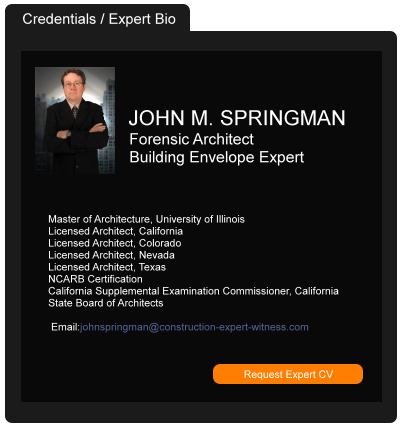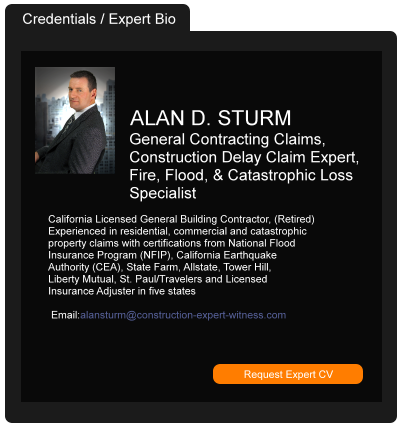Washington Builders Right To Repair Current Law Summary:
Current Law Summary: (SB 5536) The legislature passed a contractor protection bill that reduces contractors' exposure to lawsuits to six years from 12, and gives builders seven "affirmative defenses" to counter defect complaints from homeowners. Claimant must provide notice no later than 45 days before filing action; within 21 days of notice of claim, "construction professional" must serve response; claimant must accept or reject inspection proposal or settlement offer within 30 days; within 14 days following inspection, construction pro must serve written offer to remedy/compromise/settle; claimant can reject all offers; statutes of limitations are tolled until 60 days after period of time during which filing of action is barred under section 3 of the act. This law applies to single-family dwellings and condos.
Building Expert Contractors Licensing
Guidelines Seattle Washington
A license is required for plumbing, and electrical trades. Businesses must register with the Secretary of State.
Association Directory
Local # 4955
335 116th Ave SE
Bellevue, WA 98004
http://www.masterbuildersinfo.com
Seattle Washington Building Expert 10/ 10
Home Builders Association of Kitsap County
Local # 4944
5251 Auto Ctr Way
Bremerton, WA 98312
http://www.kitsaphba.com
Seattle Washington Building Expert 10/ 10
Home Builders Association of Spokane
Local # 4966
5813 E 4th Ave Ste 201
Spokane, WA 99212
http://www.shba.com
Seattle Washington Building Expert 10/ 10
Home Builders Association of North Central
Local # 4957
PO Box 2065
Wenatchee, WA 98801
http://www.nchba.cc
Seattle Washington Building Expert 10/ 10
MBuilders Association of Pierce County
Local # 4977
PO Box 1913 Suite 301
Tacoma, WA 98401
http://www.mbapierce.com
Seattle Washington Building Expert 10/ 10
North Peninsula Builders Association
Local # 4927
PO Box 748
Port Angeles, WA 98362
Seattle Washington Building Expert 10/ 10
Jefferson County Home Builders Association
Local # 4947
PO Box 1399
Port Hadlock, WA 98339
http://www.jeffcohomebuilders.com
Seattle Washington Building Expert 10/ 10
Building Expert News and Information
For Seattle Washington
Eleven WSHB Lawyers Honored on List of 2016 Rising Stars
Eighth Circuit Affirms Judgment for Bad Faith after Insured's Home Destroyed by Fire
Noteworthy Construction Defect Cases for 1st Qtr 2014
Design Professionals Owe a Duty of Care to Homeowners
Insurer Must Defend Faulty Workmanship Claims
Beth Cook Expands Insurance Litigation Team at Payne & Fears
First Railroad Bridge Between Russia and China Set to Open
The “Climate 21 Project” Prepared for the New Administration
Bats, Water, Soil, and Bridges- an Engineer’s dream
Remote Depositions in the Post-Covid-19 World
Insurers Refuse Indemnification of Subcontractors in Construction Defect Suit
Firm Leadership – New Co-Chairs for the Construction Law Practice Group
Amid the Chaos, Trump Signs Executive Order Streamlining Environmental Permitting and Disbands Infrastructure Council
Is Your Business Insured for the Coronavirus?
Franchisors Should Consider Signing a Conditional Lease Assignment Rather Than a Franchisee’s Lease
The Registered Agent Advantage
Newmeyer Dillion Attorneys Named to 2022 Southern California Rising Stars List
Fourth Circuit Questions EPA 2020 Clean Water Act 401 Certification Rule Tolling Prohibition
Measure of Damages in Negligent Procurement of Surety Bonds / Insurance
Spotting Problem Projects
May Heat Wave Deaths Prompt New Cooling Rules in Chicago
Retrofitting Buildings Is the Unsexy Climate Fix the World Needs
NYC Condo Skyscraper's Builder Wins a Round -- With a Catch
Washington State Safety Officials Cite Contractor After Worker's Fatal Fall
American Council of Engineering Companies of California Selects New Director
We've Surveyed Video Conferencing Models to See Who Fits the CCPA Bill: Here's What We Found
Judge Who Oversees Mass. Asbestos Docket Takes New Role As Chief Justice of Superior Court
School Board Sues Multiple Firms over Site Excavation Problem
Idaho Construction Executive Found Guilty of Fraud and Tax Evasion
Pennsylvania Modernizes State Building Code
10 Safety Tips for General Contractors
Pennsylvania Superior Court Fires up a Case-By-Case Analysis for Landlord-Tenant, Implied Co-Insured Questions
Five "Boilerplate" Terms to Negotiate in Your Next Subcontract
Additional Elements a Plaintiff Must Plead and Prove to Enforce Restrictive Covenant
NAHB Reports on U.S. Jobs Created from Home Building
Business Interruption Insurance Coverage Act of 2020: Yet Another Reason to Promptly Notify Insurers of COVID-19 Losses
Construction Defect Disputes: Know Your Measure of Damages!!!!!
Florida Accuses Pool Contractor of Violating Laws
Florida’s Supreme Court Resolves Conflicting Appellate Court Decisions on Concurrent Causation
How Data Drives the Future of Design
Coloradoans Deserve More Than Hyperbole and Rhetoric from Plaintiffs’ Attorneys; We Deserve Attainable Housing
DA’s Office Checking Workers Comp Compliance
A Landlord’s Guide to the Center for Disease Control’s Eviction Moratorium
Workers Compensation Immunity and the Intentional Tort Exception
Hovnanian Reports “A Year of Solid Profitability”
Using Lien and Bond Claims to Secure Project Payments
Recent Bribery and Anti-Corruption Enforcement Trends in Global Construction Industry
Lump Sum Subcontract? Perhaps Not.
With VA Mechanic’s Liens Sometimes “Substantial Compliance” is Enough (but don’t count on it)
Judge Tells DOL to Cork its Pistol as New Overtime Rule is Blocked


































































